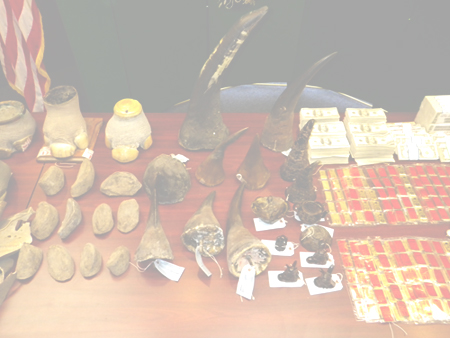Currently, the U.S. Department of State publishes the annual Trafficking in Persons (TIP) Report, “which places each country onto one of three tiers based on the extent of their governments’ efforts to comply with the ‘minimum standards for the elimination of trafficking.’”
The Future of Operation Crash
While wildlife trafficking is perceived as a global, transnational issue, it is often forgotten that wildlife trafficking is also a domestic issue that U.S. law enforcement officials are currently grappling with. In 2011, the U.S. Fish and Wildlife Service’s Office of Law Enforcement formed Operation Crash, which investigates rhino horn… read more
The future of oil exploration and governance in the DRC
Virunga National Park is the oldest national park in Africa and is also a UNESCO World Heritage Site. Located in the Democratic Republic of Congo (DRC), the park borders Uganda and Rwanda. Virunga is rich in wildlife and fauna, having over 706 bird, 196 mammal, and 2,000 plant species. Although… read more
Are taskforces effective in curbing illicit wildlife trade?
On February 2014, President Obama approved the National Strategy for Combating Wildlife Trafficking and Commercial Ban on Trade in Elephant Ivory. This strategy entails strengthening U.S. role in combating wildlife trafficking, including: strengthening both national and global enforcement, reducing consumer demand, and strengthening partnerships and relations with nations, NGOs and… read more
The role of “other” multilateral organizations
Aside from the Convention on International Trade in Endangered Species of Wildlife Fauna and Flora (CITES), prominent multilateral organizations are working to combat wildlife trafficking. These organizations include the United Nations, the World Bank, the World Customs Organization, and INTERPOL. Together with CITES, these five organizations established the International Consortium… read more
Is it possible to change wildlife consumer behavior?
Despite decades of international efforts in wildlife conservation, both the international community and countries worldwide continue to tackle the challenge of wildlife poaching. In 1979, the Convention on International Trade in Endangered Species of Wild Fauna (CITES) was established as a multilateral agreement dedicated to “…ensure that international trade in… read more


